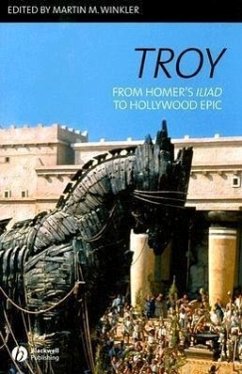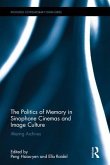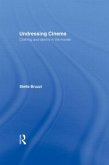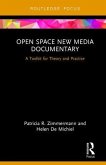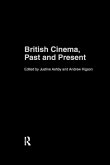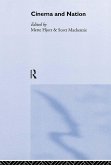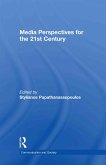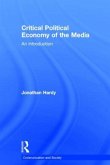This is the first book to examine systematically Wolfgang Petersen's epic film Troy from archaeological, literary, cultural, and cinematic perspectives. The collection addresses the most important aspects of the film: its use of Homer's Iliad and the myth of the Trojan War, its presentation of Bronze-Age archaeology, its modern political overtones, and its place in film history with regard to both previous epics on the Trojan War and the director's own earlier work. The book explains why, despite or perhaps because of the liberties the film takes with ancient myth, literature, and archaeology, Troy has found huge worldwide audiences. For those who wish to explore the subject further, the book includes an annotated list of feature films and television films and series episodes on the Trojan War.
Hinweis: Dieser Artikel kann nur an eine deutsche Lieferadresse ausgeliefert werden.
Hinweis: Dieser Artikel kann nur an eine deutsche Lieferadresse ausgeliefert werden.
"This is an excellent collection of essays. Editor MartinWinkler and the twelve authors are to be commended for getting ittogether and out so quickly while Troy is still relatively fresh inviewers' minds. The articles could be read by anyoneinterested in the movie; they should be read by any classicist whohas seen it. Each piece - and each is pleasantly concise- offers good insight into Petersen's movie, and whentaken all together, they can make the reader believe he/she reallyliked the movie and would be willing to see Troy again."(International Journal of the Classical Tradition, Fall2007)
"This is an excellent collection of essays....a veryuseful, informative, and readable book, a book which itself,perhaps, takes its place in the way we understand the stories ofthe Trojan War." (International Journal of the ClassicalTradition)
"Classics and film is a staple of university curricula; it hasbecome respectable, in large part thanks to Winkler's ownpersistent dedication ... Certainly [the book's] roster ofcontributors is aptly chosen for philological and ...archaeological strength-in-depth ... All of us working in thesubject area will need to familiarize ourselves with the volume'scontents ... We will be seeing a lot of this material in studentessays and dissertations from here on in ... A strong andappealingly diverse field of essays ... adventurous in scope andvery well informed. It will inspire students and professionalsalike to fresh explorations." (Arion)
"Any reader interested in understanding the relationship betweenthe Homeric texts and this film will profit greatly from thiscollection... I would even highly recommend this collection toreaders of Homer with little interest in contemporary film. [Such]insights should encourage the reader to look at the Homeric textswith a new perspective." (New England ClassicalJournal) "A fascinating collection of highly-readable essays by prominentfilm scholars and ancient historians, covering topics all the wayfrom the place of ancient literature in modern film to thearchaeology of the actual ancient Troy, to the politics of the newPetersen movie -- and the politics of a historian advising aHollywood film. Highly recommended." -Arthur M.Eckstein, University of Maryland
"A well-elaborated study of the impact Troy has had onphilological and other circles."
-Anthony Makrinos, Greek and Latin Department, UniversityCollege
"This is an excellent collection of essays....a veryuseful, informative, and readable book, a book which itself,perhaps, takes its place in the way we understand the stories ofthe Trojan War." (International Journal of the ClassicalTradition)
"Classics and film is a staple of university curricula; it hasbecome respectable, in large part thanks to Winkler's ownpersistent dedication ... Certainly [the book's] roster ofcontributors is aptly chosen for philological and ...archaeological strength-in-depth ... All of us working in thesubject area will need to familiarize ourselves with the volume'scontents ... We will be seeing a lot of this material in studentessays and dissertations from here on in ... A strong andappealingly diverse field of essays ... adventurous in scope andvery well informed. It will inspire students and professionalsalike to fresh explorations." (Arion)
"Any reader interested in understanding the relationship betweenthe Homeric texts and this film will profit greatly from thiscollection... I would even highly recommend this collection toreaders of Homer with little interest in contemporary film. [Such]insights should encourage the reader to look at the Homeric textswith a new perspective." (New England ClassicalJournal) "A fascinating collection of highly-readable essays by prominentfilm scholars and ancient historians, covering topics all the wayfrom the place of ancient literature in modern film to thearchaeology of the actual ancient Troy, to the politics of the newPetersen movie -- and the politics of a historian advising aHollywood film. Highly recommended." -Arthur M.Eckstein, University of Maryland
"A well-elaborated study of the impact Troy has had onphilological and other circles."
-Anthony Makrinos, Greek and Latin Department, UniversityCollege

